Stop Gum Disease in Its Tracks
Did you know that according to the CDC, over 47% of adults in the U.S. who are 30 years or older have some form of periodontal problem? It’s also the number one leading cause of tooth loss so it’s important to stop gum disease in its tracks. Fortunately, Dr. Burton can protect and preserve your smile with multiple treatment options to address the issue. Continue reading below to learn more about it, and feel free to contact our friendly team with any additional questions.
Why Choose Magnolia Family Dentistry of Austin for Gum Disease Treatment?
- Skilled Dentist With 10+ Years of Experience
- Advanced Technology for Accurate Treatments
- Flexible Financing Available
What is Gum Disease?

Gum disease, also known as periodontal disease, occurs when bacteria in your mouth penetrate below your gumline and affect the connective tissues and underlying bone structure that support your teeth. There are two types, and they are:
- Gingivitis . This is the earliest stage of this condition and can often be reversed by improving your oral hygiene routine, in addition to maintaining routine dental appointments every 6 months.
- Periodontitis . If gingivitis isn’t treated, it eventually progresses into this advanced stage. This type can be managed, but not necessarily cured.
Certain factors increase the likelihood that you’ll develop a problem, such as:
- Smoking, vaping, or using other tobacco products.
- Poor oral hygiene habits.
- Medical conditions that suppress your immune system, like diabetes.
- Medications that cause dry mouth.
- Hormonal changes due to pregnancy or menopause.
Symptoms of Gum Disease

Unfortunately, gingivitis can be hard to detect because you might not notice visible signs until it has progressed. Some indicators that you may have developed an issue include:
- Halitosis, or chronic bad breath.
- Red or swollen gums.
- Slight bleeding when you brush or floss.
- Gum recession (where the gums pull away from the surface of your tooth exposing more of the structure).
You might have periodontitis if you notice:
- Loosened adult teeth.
- Pain while chewing.
- Sensitivity because of gum recession.
- A change in how your restoration fits (for example, your dentures may become dislodged)
- Permanent tooth loss.
How Do We Treat Gum Disease?
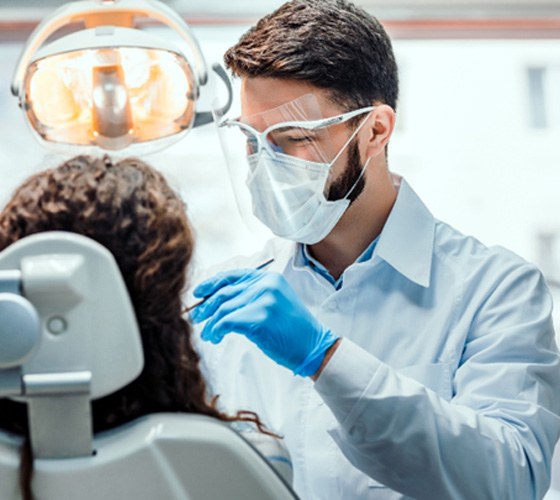
Before she can suggest a suitable treatment plan, Dr. Burton must first examine your mouth to determine the severity of your condition. Then, depending on your circumstances, she might recommend one of the following services:
Scaling & Root Planing
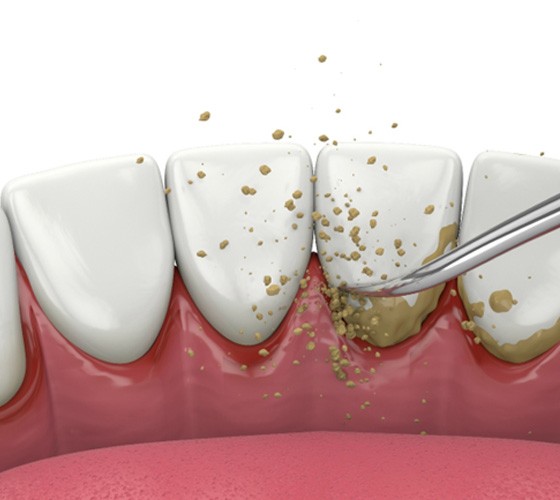
For more advanced cases of gum disease, we may suggest scaling and root planing. This is a noninvasive way to address the root cause of your gum problems – namely, the bacteria that have accumulated around and below your gum lines. Scaling and root planing focus on the parts of your smile that a traditional dental cleaning wouldn’t reach, and the treatment can also help reduce the chances of future infections.
Do I Need Scaling & Root Planing?
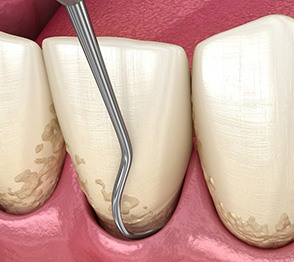
One thing to note about scaling and root planing is that they aren’t always necessary. If you have a milder form of gum disease, you may be able to get your oral health back on track simply by having regular dental cleanings performed more often while also doing a better job of brushing and flossing thoroughly. On the other hand, if your gum disease has reached its more advanced stages, then scaling and root planing might be required.
It's imperative that you contact us right away if you think that you have gum disease. Once we have examined your mouth and gotten a better grasp on your situation, we can determine whether scaling and root planing are right for you.
The Process of Scaling & Root Planing
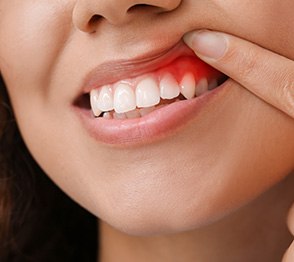
During the scaling process, specialized dental instruments are used to remove plaque and tartar from your smile. This process focuses on cleaning the area beneath the gumline to get rid of any bacterial deposits that might have built up.
After the scaling process comes root planing, which involves taking the tooth roots that are typically covered by gum tissue and smoothing them out. Thanks to this step, bacteria will have a harder time accumulating in the future, and it will be easier for the gum tissues to reattach themselves.
Aftercare Tips for Scaling & Root Planing
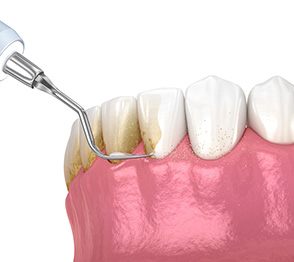
You’ll need to take care of your gums for a while following scaling and root planing. Here are some tips that can help ensure that everything goes smoothly while you’re waiting for your mouth to heal:
- Wait to Eat Until Your Local Anesthetic Wears Off: Your mouth will be numbed for your scaling and root planing treatment. Trying to eat in this state could result in accidentally biting your tongue or the inside of your cheek; as such, it’s safer to wait for the effects to wear off before you enjoy any meals.
- Take Steps to Manage Your Discomfort: While your mouth is healing, you may experience some level of discomfort. To keep it under control, you can take ibuprofen or another kind of over-the-counter pain reliever.
- Be Gentle While Cleaning Your Teeth: Good oral hygiene is always a top priority, so you should still make a point of brushing your teeth at least twice a day. That said, you do need to be extra careful while brushing around the areas where scaling and root planing were performed.
Antibiotic Treatment

We can also use medication to eradicate unwanted bacteria from your mouth. Dr. Burton can prescribe an antibiotic pill that eradicates germs and fights infection. This prevents your condition from worsening and gives your gums a chance to heal.
